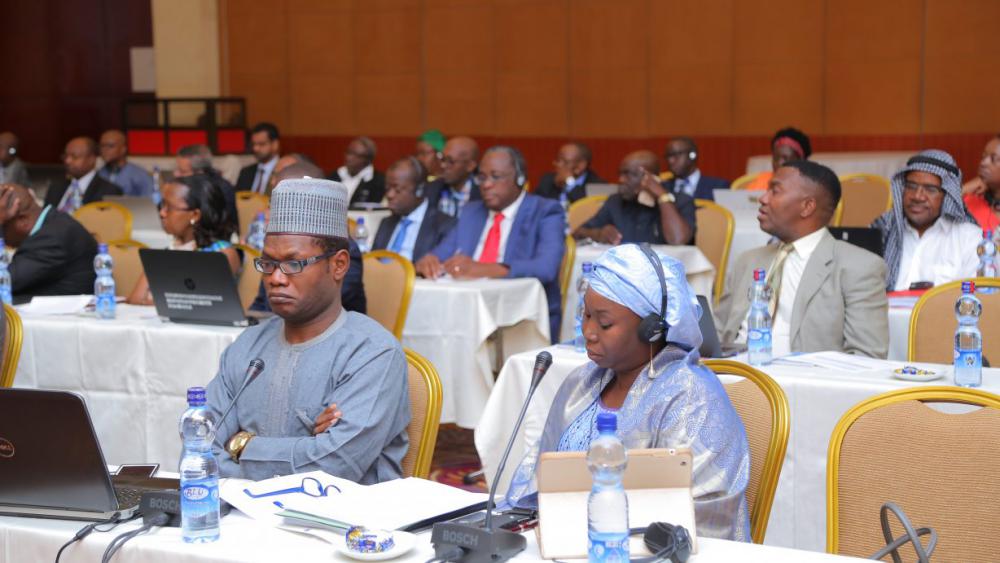Spotlight on CBLNs
- June 26, 2018
- Non classé
- By Armelle Nyobe

Learn more about CBLNs in 5 questions:
What ?
CBLNs are meant to increase African countries’ influence in Global Fund policies and decisions. As the recipient of the fund’s nearly 70% of grants, it is in the best interest of the continent if it were more organized, and collaborated for a united stand using the best available evidence. In the last four years or so, African countries largely collaborated during the Annual Africa Consultative Meetings (ACMs). While this has been an important step towards generating consensus and having a collective voice, it is however insufficient. This set-up does not allow African Constituencies to sufficiently exchange, discuss and digest the upcoming and critical issues and, more importantly, proactively engage the Global Fund decision making avenues. CBLNs therefore are at the core of the Bureau’s mission of facilitating collaboration across the two constituencies and ensuring that Africa’s voice in Global Health policy decisions is enhanced.
What is the value addition of having CBLNs?
The CBLN platform is expected to add value by:
- Regularly legitimizing and mandating African Constituencies’ representatives in Global Fund governance deliberations.
- Analysis of current and proposed Global Fund initiatives and strategies and to what extent they impact and contribute to Africa’s capacity to effectively tackle the 3 epidemics.
- Analysis of current and potential role of African Countries in taking lead in the next round of Global Fund replenishment.
- Assessment of opportunities and challenges in achieving the objectives of the current Global Fund Strategy and strategies through which Africa’s can harness and utilize its diversity and experience.
- Perspectives on how the challenges could be addressed – Exchange experiences and lessons learned – Opportunity for more engagement across countries and constituencies
- Collate best practices and identify innovative ways of quickly adopting them widely across the continent.
- Proactively identifying key policy issues and challenges and commissioning policy research
- Building consensus and strengthen the Africa voice
Where ?
Under the CBLN platform, 10 to 12 countries are grouped together based on geographic and language considerations and collaborate on an on-going basis. The two African Constituencies have been further divided into four regional groupings, each with an anchor country and organization. Below are four regional clusters and the respective countries associated with them:
- Twelve (12) Southern African countries, including: Angola, Botswana, Lesotho, Malawi, Mauritius, Mozambique, Namibia, South Africa, Seychelles, Swaziland, Zambia and Zimbabwe. These will be anchored in Johannesburg, South Africa
- Thirteen (13) countries from Eastern Africa and West African Anglophones, including: Burundi, Eritrea, Kenya, Ethiopia, Rwanda, South Sudan, Tanzania, Uganda, Gambia, Ghana, Liberia, Sierra Leone. These will be anchored in Kampala, Uganda;
- Ten (10) Francophone West African countries, including: Burkina Faso, Benin, Cape Verde, Guinea, Guinea Bissau, Senegal, Mali, Mauritania, Niger and Togo. These will be anchored in Dakar, Senegal.
- Eleven (11) Central African Francophones, including from the rest of Africa, comprising of: Cameroon, Central African Republic (CAR), Chad, Congo DRC, Cote d’Ivoire, Gabon, Equatorial Guinea, Madagascar and Comoros. These will be in anchored in Abidjan, Cote d’Ivoire.
When?
CBLN deliberations will primarily be in form of virtual and in-person meetings. Virtual meetings will be happening every six (six) weeks and will be hosted and moderated by anchor countries jointly with ACB staff. CBLN in-person meetings will take place on a quarterly basis with the first rounds of meetings planned on the following dates:
- Southern Africa – February 26-27 – Johannesburg, South Africa
- Eastern Africa – March 1-2 – Kampala Uganda.
- Central Africa – March 5-6 – Abidjan, Cote d’Ivoire, and
- West Africa – March 8-9, Dakar, Senegal.
Why?
More specifically the CBLNs’ objectives are:
- Leadership Feedback: Updates to the Clusters on previous Global Fund Board meeting and enumerate critical decisions coming in the next Board/Committee meetings;
- Consensus Building: Cluster deliberations on critical issues concerning Global Fund implementation that require Governance attention (Global Fund Board and Committees) and mandate the Board Members and Committee Members to present these to the upcoming Global Fund governance meetings;
- Proactive Policy Agenda: Identify and prioritize critical policy issues and challenges that positively or negatively impact on Africa and develop mechanisms of influencing discussions and decisions around them. This might also include commissioning research on specific policy challenges with the express aim of delving deeper into the issues so as to understand them better and thus help exploring how to resolve them;
- Sharing Best Practices and Lessons learned: Country-specific Best Practices and Lessons learned will be presented in Groups and plenary;
- Country Feedback: Countries will provide feedback on how best to operationalize CBLNs to ensure they’re strong building blocks for meaningful bottom-up participation in the Global Fund policy making cycle;
- Action Plan: Develop an action plan for the next 4 months
Let’s catch up after the 1st meeting at Johannesburg, South Africa.


